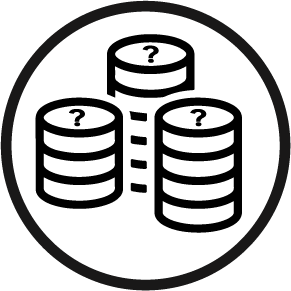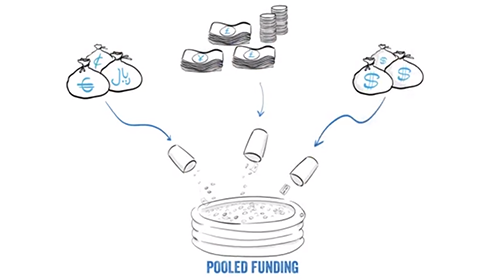Welcome to Topic 3 of 6 of the International Council of Voluntary Agencies' Learning Stream - Demystifying Humanitarian Financing. This online course is about how NGOs can engage in pooled funding. We recommend you take Topic 1 and Topic 2 before doing this section.
The recent World Humanitarian Summit reaffirmed the importance of NGO access to humanitarian financing. However, with the exception of well-resourced organizations, the majority of NGOs have a limited understanding of and influence over decisions related to humanitarian financing – and by extension, limited direct access to humanitarian financing.
In light of this, ICVA is creating an online learning stream aiming to demystify the complex humanitarian financing landscape. The stream specifically targets NGO staff, including field, policy and HQ staff. Short videos and briefing papers will help simplify complex topics. Webinars, held in partnership with PHAP, are open to anyone interested in improving their understanding of humanitarian financing. Our topics include:
- Topic One: The Humanitarian Financing Landscape - Realities and emerging trends for NGOs
- Topic Two: UN humanitarian funding - demystifying NGO access
- Topic Three: Pooled funding - how can NGOs engage?
- Topic Four: Bilateral funding - trends, challenges and opportunities for NGOs
- Topic Five: Private funding - a growing source for NGOs?
- Topic Six: The Grand Bargain and its impact on NGOs

Is this course for me? Primary Audience: NGOs with limited exposure to - and understanding of - humanitarian financing mechanisms. Focused specifically on NGO staff engaged in policy, strategy, resource mobilization and organizational leadership.
Secondary Audience: All other NGO staff, other humanitarian actors, general public etc.

How will I benefit from this course? On completion of this course you will:- Have a stronger understanding of the various humanitarian financing mechanisms, and the challenges and opportunities experienced by NGOs in accessing funding.
- Be better informed to engage in further discussions; influence policy where possible; and, access humanitarian financing.
- Awareness of the different existing pooled funds and familiarity with their raison d'être and history
- Understanding of how NGOs can access the main pooled financing mechanisms, including the CBPFs, and NGO-led pooled funds
- Awareness of the main challenges and opportunities for NGOs to access pooled funding
- Knowledge of the different sources of information on humanitarian pooled funding

How long will it take? It should take you about 2 hours to complete.

How much does it cost? This course is free.

Will I get a certificate at the end? Yes! You will be able to download a certificate after you have completed all the modules and the feedback form.

How do I start? Click on Join button on this page. This will take you through to the course modules. Don't worry, if you stop a module halfway through, you can always continue later from where you left off.

Secondary Audience: All other NGO staff, other humanitarian actors, general public etc.

- Have a stronger understanding of the various humanitarian financing mechanisms, and the challenges and opportunities experienced by NGOs in accessing funding.
- Be better informed to engage in further discussions; influence policy where possible; and, access humanitarian financing.
- Awareness of the different existing pooled funds and familiarity with their raison d'être and history
- Understanding of how NGOs can access the main pooled financing mechanisms, including the CBPFs, and NGO-led pooled funds
- Awareness of the main challenges and opportunities for NGOs to access pooled funding
- Knowledge of the different sources of information on humanitarian pooled funding





PHAP Credentialing Program: Understanding the Humanitarian Ecosystem
This webinar will help you prepare for the PHAP Credentialing Program certification in Understanding the Humanitarian Ecosystem.
In particular, the webinar will address segment 2.6 of the certification assessment outline. It also addresses some aspects of segments 1.5, 1.7, 2.3, 3.1, 3.2.
Read more about the PHAP Credentialing Program
